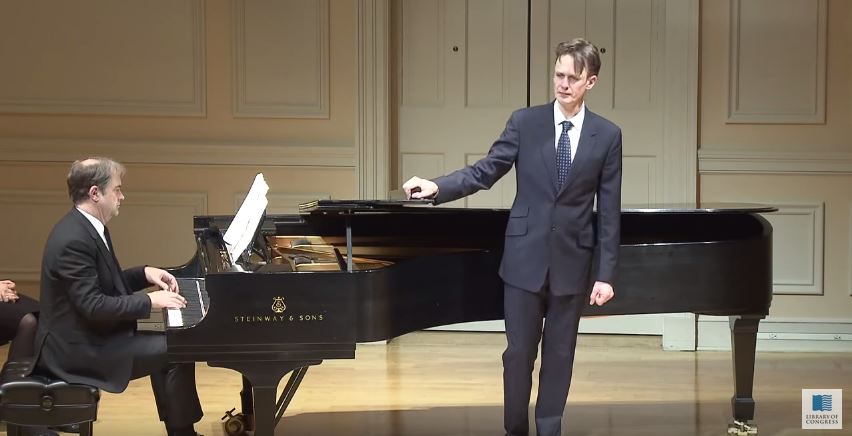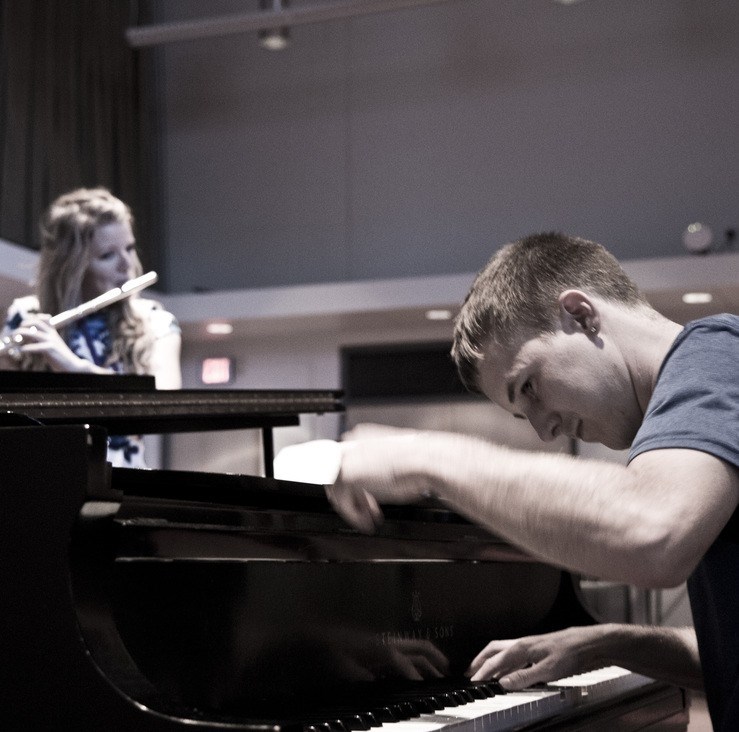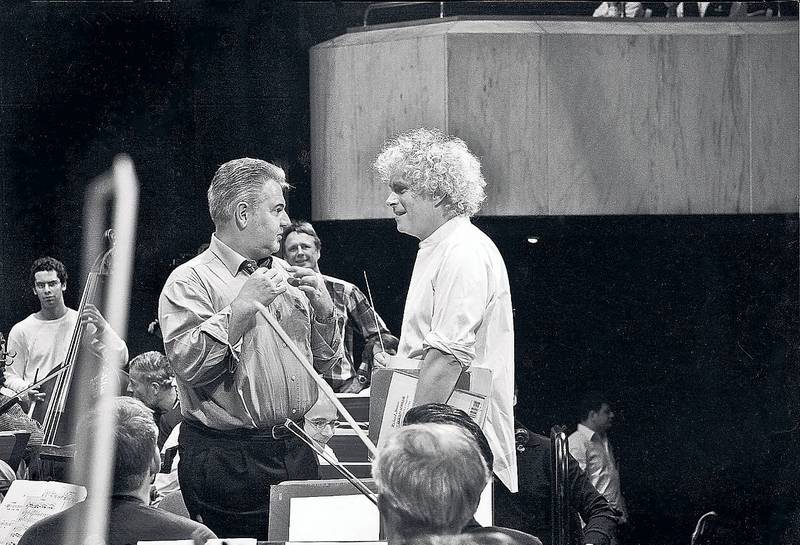From a Slippedisc reader:
Friday 27 August recital by (British tenor) Ian Bostridge and (pianist) Julius Drake at the Schubertiade at Schwarzenberg where they perform regularly. First half unknown lieder with scores, second half better known without scores.
After applause, Die Forelle as encore, rather beautifully done. More applause. They return to do another encore when from the back a German voice shouts “bitte Deutsch lernen” (please learn German). Both look shocked.
Another encore (is) sung then Bostridge marches down the aisle and returns leading said German onto the platform suggesting he might like to address the audience. He says few words, is escorted off stage. Not the usual recital then.

(c) Robert Avery, Habsburg Heritage Cultural Tours
UPDATE: Here’s what a German critic thought of the incident.
We have received the following validation of our first report from the festival’s MD:
On August 25, 2016 around 2:15pm, out of total surprise, Mihnea Ignat, the conductor of our resident orchestra, jumped on me on Corso Vannuci in Perugia and attempted to strangulate me.
I am not a teacher at Music Fest Perugia, but the managing director of the festival and as such was involved in discussion about the payment for the orchestra, which was provided and executed on August 25th as required by the contract. Mihnea’s assault occurred at 2:15pm on August 25th.
We called the police who directed me to immediately go to the emergency room of the hospital, which I did. I have since been in further meetings with the police and will be pursuing criminal charges against Mihnea Ignat for attempted strangulation. There is surveillance video of the attack and it will be released in due time.
I have copies of a letter from members of the orchestra apologizing to me for the conduct of their director, a copy of my hospital evaluation, a copy of my statement to police regarding Mihnea’s attempted strangulation and a copy of a signed contract stating that the orchestra has been paid in full. I am happy to provide these documents to you upon request.
Many thanks,
John Holloway
Managing Director
Music Fest Perugia

pictured at piano, earlier this year
Peter Brem has retired from the first violins at 65 and written a book about the maestros he worked with – Karajan, Abbado, Rattle.
Brem was an influential figure in the orchestra, chair of its media group from 1992 and the force behind its record deal with the rock group Scorpions, a project widely condemned by traditionalists but apparently a two-million-selling hit.
The book is out now: Peter Brem. Ein Leben lang erste Geige. Rowohlt, 16.99 Euros

If you have any brain cells to spare for the ongoing debate on the purpose of musicology – pay attention, please: it’s not about the study and history of music any more – our good friend William Chaeng has offered another free excerpt from his new book, this time about the real purpose of musicology.
Sample:
Let’s pose the question of scholarly priorities in a more challenging way. Is musicology about the safety of a female music student? No, it isn’t, if we define musicology starkly as the study of music. But yes, it is, if we envision musicology as all the activities, care, and caregiving of people who identify as members of the musicology community. In a post-Obama yes-we-can era, Killam’s yes, it is! can serve anew as a disciplinary rallying cry. Beyond overtly activist work, what if we regularly upheld care not just as a bonus activity or a by-product of scholarship? In a world where injuries run rampant, what if care is the point?
Riffing on Marshall McLuhan and Andy Warhol, Phil Ford has characterized the discipline of musicology as “anything you can get away with.” By this, he means that rather than categorically insisting on what topics do or do not fall under musicology, let’s conceive of musicology as whatever self-identified musicologists choose to do. Disciplinary boundaries incessantly shift and shimmer anyway—so why not justify their flexibility via people’s diverse, quirky interests? “The primary pleasure that scholarship offers is the chance to encounter other minds and thereby expand one’s own,” Ford muses. “The full range of other minds constitutes the true horizon that bounds the humanist; nothing human should be alien to us.” But if musicology is anything we can get away with, a caveat is that the discipline must simultaneously encompass everything we cannot afford to run away from—care, compassion, and interpersonal concerns that don’t always sound scholarly as such.
Discuss among yourselves. Humanely, please.
Nicholas Edwards, acoustic designer for Meyerson Symphony Hall and other fine venues, relates in this new video how Boston Symphony Hall got it right.
You see it here first.






